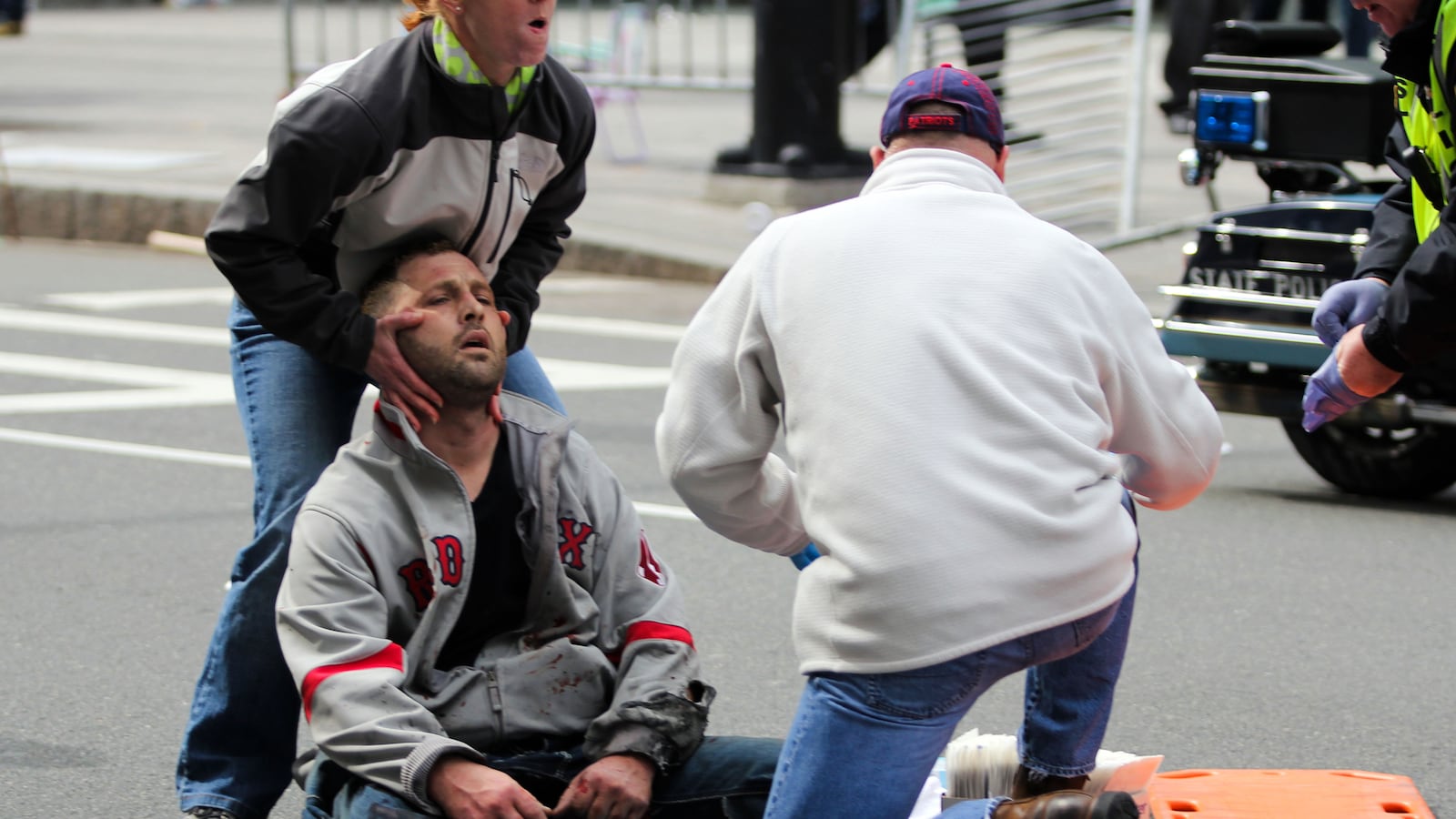In the aftermath of the horrific Boston bombings, the media has been full of inspiring stories about the valor and courage of ordinary Bostonians. Bystanders running toward the blast to help the wounded; first responders, who have trained exhaustively for a dreaded moment like this, saving lives with their skill and selflessness; marathoners crossing the finish line after the explosions only to keep running to hospitals where they could give blood to those in need. President Obama acknowledged the pluckiness of Bostonians when he spoke just hours after the attack. “Boston,” he said, “is a tough, resilient town and so are its people.”

Almost a dozen years after 9/11, it appears that Americans are more resilient, and not only in Boston. I noticed it on the streets of Washington last night. There was a slightly larger police presence around the White House and other city landmarks, but the Washingtonians I saw were going about their normal business: restaurants were overflowing with people, bookstores and cafés were packed. It was if to say, “We will not be cowed or intimidated.” We’ve come a long way from the days of orange alerts and duct tape.
Sadly, as Israelis, Afghans, Iraqis, and Brits all know, resilience comes with experience. The more terror attacks—and near misses—inflicted on a country, the tougher Americans will be. But the Obama administration has also made “resilience policy” a priority. Early on, the Obama administration created a new position within the national security council—special assistant to the president and senior director for resilience policy—to give the issue a higher priority. And the Department of Homeland Security has spent a lot of money and time training state and local authorities to better bounce back from terrorist attacks and natural disasters.
It’s the right policy, and its benefits may be on display in Boston right now. But politically it’s a tough sell. Obama learned from personal experience the perils of underplaying the terrorist threat. The first time was after the Christmas Day bombing attempt when it took three days for the president to surface publicly to calm the jittery nerves of the American people. Obama’s implicit message—that a restrained, measured, and proportionate response would give the American people more confidence than rushing to the microphones—did not go over well, as he was hammered in the press and on Capitol Hill for his lackadaisical reaction. Later, Obama gave an interview to The Washington Post’s Bob Woodward in which he stated, indisputably, that America “can absorb” another terrorist attack—implying that we won’t be able to prevent every attempted act of terror. The conservative blogosphere lit up, led by Liz Cheney, who accused Obama of an alarming fatalism and of abdicating his paramount responsibility: doing everything in his power to protect the American people.
Obama has quietly persisted in his efforts to try to strengthen the country’s resilience, both physically and psychologically. But the real test comes now after a real attack. That will be especially true if Boston turns out to be the work of Al Qaeda or an affiliated organization. One precinct that has yet to demonstrate its resilience in the face of terrorism is Congress. Once the dust begins to settle in Boston, policymakers will start worrying about another insidious danger to the country. Will fear-mongering politicians overreact to the threat of terrorism by ratcheting up their rhetoric to hysterical levels and pushing counter-productive policies? After 9/11, the country moved into a permanent state of anxiety that led to policies—from water boarding to harsh visa restrictions—that arguably made us weaker rather stronger. In the wake of Boston, there’s a danger that could happen again, if on a smaller scale. That possibility is something CIA Director John Brennan warned of as far back as May 2010. In a speech in Washington, he warned Americans to resist a “mad rush driven by fear” and instead react “in a thoughtful and reasoned way.”
Within the White House, Obama has sounded the same theme from the beginning of his presidency. In his first year in office, he participated in a top-secret “table-top” exercise in which senior government officials prepared for the possibility of a catastrophic terrorist attack. With a plot unfolding in the United States, the national security team had to coordinate a “whole-of-government” response to the impending disaster, including how to communicate to the American people. At the end of the exercise, according to two participants who asked not to be identified, Obama addressed the entire group. “One of the things for which I’m proudest of this administration is that we haven’t demagogued these issues,” he told his team. “We haven’t been playing with people’s fears and we haven’t been playing politics with terrorism.”
But that was just an exercise. The question now is: will the Obama administration have the political resilience to resist the onslaught from Congress should the marathon attack turn out to be the work of Al Qaeda? For inspiration, all they need to do is watch the good—tough—people of Boston.




